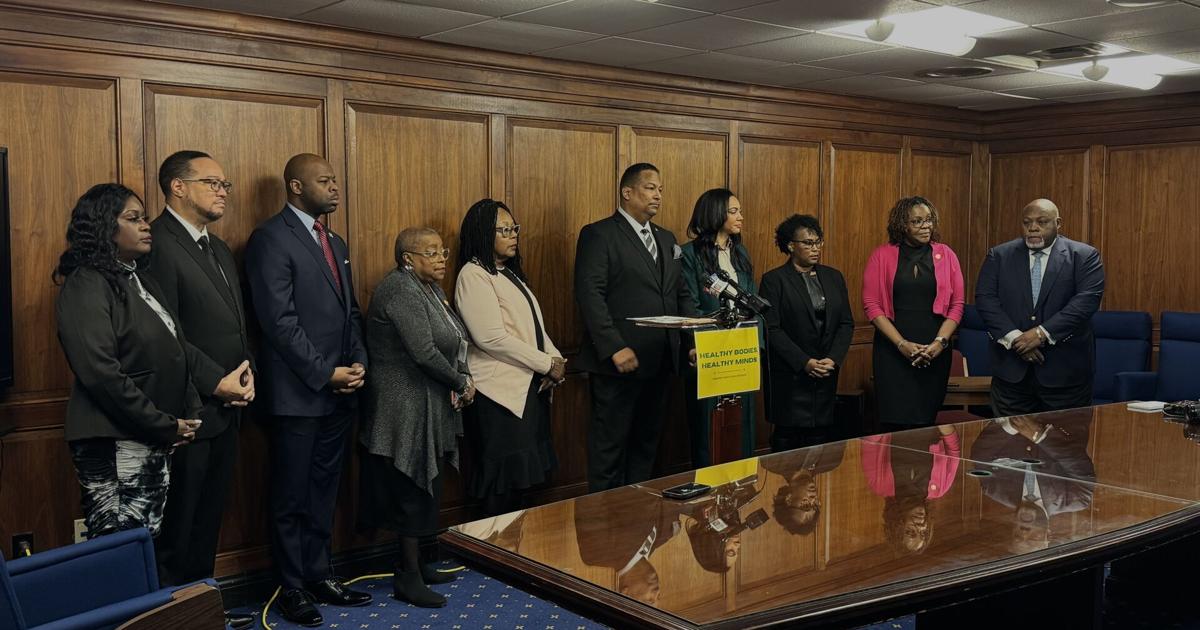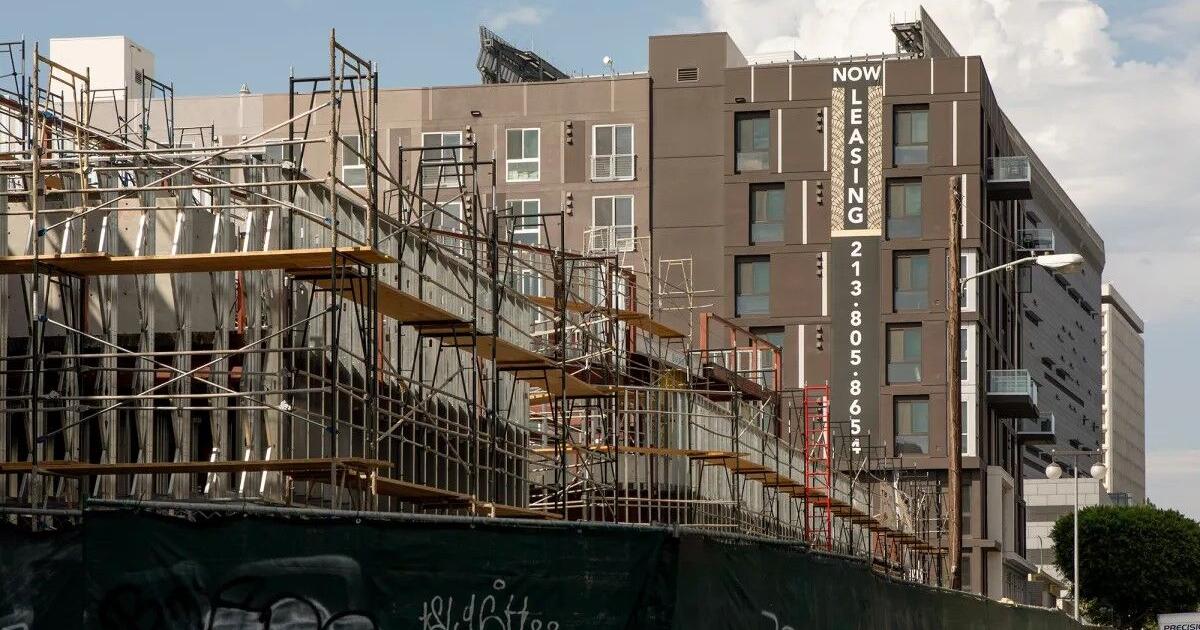- BlackVoter.Org
- Posts
- BlackVoter.Org
BlackVoter.Org

In a striking turn of events, Newfields, the Indianapolis museum, removed Tony Radford's artwork featuring President Trump from its Juneteenth exhibit, "Truth to Freedom." Radford's piece, "Blackface: Welcome to America V," which weaves together themes of Black history and political commentary, was deemed "too political" just before the exhibit's opening.
Although the exhibit has embraced strong social messages in the past, the leadership’s choice to omit Radford’s artwork reflects a broader trend within the American art community—one marked by fears of backlash and funding cuts. Curator Angelita Hampton, who opposed the decision, candidly acknowledged it as censorship.
The controversy highlights the ongoing tension between artistic expression and institutional responsibility, prompting discussions about the costs of artistic freedom in a politically charged climate. The exhibit continues through August 24, but the debate around censorship lingers, as artists grapple with the implications of their work in today's landscape.

In a thought-provoking piece, Touré F. Reed challenges the narrative that racism and misogyny solely explain Kamala Harris's defeat in the 2024 election.
He argues that while these factors certainly played a role, they were not the primary reasons for her loss. Reed emphasizes that many voters of color, including Black and Hispanic men, actually turned away from Harris, undermining the claim that she suffered primarily due to racial biases.
Instead, he points to broader issues like economic inequalities and the Democratic Party's diminishing appeal to working-class voters. By dissecting the complexities of voter behavior and societal dynamics, Reed asserts that the party's failure to effectively channel these grievances into solutions left them vulnerable to Trump’s resurgence.
Ultimately, he advocates for a more nuanced understanding of race and equality, stressing that issues of justice should not be simplified to racial moralism.

As we celebrate Juneteenth, State Rep. Earl Harris Jr.
, a key figure in the Indiana Black Legislative Caucus, urges us to reflect on the entirety of American history, emphasizing the importance of acknowledging both the achievements and the struggles of African Americans. He highlights Juneteenth as a powerful reminder of liberation—a day that commemorates when enslaved people in Texas finally learned of their freedom in 1865.
Harris argues that embracing our complex past is crucial for democracy and progress, especially as recent efforts threaten to erase critical narratives surrounding slavery and civil rights. He calls for educational initiatives that teach "the good, the bad, and the ugly" of American history to ensure that contributions of Black Americans are not overlooked.
Juneteenth is more than a celebration; it's a call to action, a moment to reaffirm our commitment to equity and inclusion for all.

Danielle Moodie passionately commemorated the tenth anniversary of Donald Trump’s infamous escalator ride—the moment that launched his controversial presidential campaign—by reflecting on the ensuing decade of political and cultural upheaval. In a striking Instagram post, she bemoaned the erosion of empathy and decency in American politics, urging a collective stand against what she calls a “decade-long descent into cruelty.
” Through a compelling video message, Moodie condemned the normalization of indifference towards critical issues like racial injustice and economic inequality, highlighting how compassion has been labeled as radical. She extended her critique to billionaire influence and unchecked capitalism, emphasizing the urgency of a relentless fight for justice.
By framing Trump’s escalator moment as a pivotal turning point, Moodie calls for awakening civic responsibility and compassion amidst growing societal divisions, reinforcing her unwavering commitment to advocating for marginalized communities in the face of overwhelming greed.

Reforming California’s Environmental Quality Act (CEQA) is crucial for preserving the state’s environmental legacy while tackling modern challenges like housing shortages. Originally designed to protect air and water quality and sensitive habitats, CEQA has, over the years, inadvertently blocked essential housing projects, leading to more urban sprawl and increased pollution.
Assembly Bill 609 proposes a targeted reform, exempting compliant infill housing from CEQA, thus facilitating quicker, cost-effective development in urban areas. This change not only supports the environment by reducing growth pressure on open lands but also addresses California’s escalating housing crisis.
By balancing environmental protections with housing needs, these reforms demonstrate that legislative evolution can foster both ecological sustainability and community growth. In a rapidly changing socio-political landscape, embracing such measures ensures California remains at the forefront of environmental stewardship while retaining its population and political power.

In a compelling discussion, Joy Reid emphasizes the urgency for Black Americans to remain engaged in socio-political issues, especially as crackdowns on immigration intensify. Acknowledging the fatigue many feel, Reid warns that retreating from political discourse can have dire consequences—because, as she puts it, “when America catches a cold, Black folks catch pneumonia.
” With fear and distrust creeping into Black communities since the 2024 elections, many are questioning their role in the ongoing fight for justice. Reid encourages her audience to see activism as a "relay race," where participation involves not just pushing for progress but also taking time to rest and recharge.
She reminds us that the issues affecting immigrants inevitably trickle down to impact Black Americans as well, urging us to stay informed and connected. After all, visibility and engagement matter profoundly in the struggle against systemic oppression.

As Juneteenth unfolds, the contrast between the Trump administration's approach and President Biden's previous celebrations couldn't be starker. While Trump’s White House remains silent on the holiday honoring the end of slavery, last year saw Biden transform Juneteenth into a vibrant federal holiday, complete with star-studded festivities on the South Lawn.
Former aide Erica Loewe reflected on the shifts, lamenting a current leadership that “diminishes our contributions.” Meanwhile, advocates like Jason Edwards, son of the “Father of Juneteenth,” emphasize that regardless of political sentiment, the spirit of celebration remains alive and defiant.
Civil rights leaders urge a reflective focus on ongoing threats to Black freedoms, stressing that every act of joy and remembrance is a form of resistance. As America marks 160 years since the official end of slavery, the necessity for equity persists, reminding us that the fight for freedom continues.